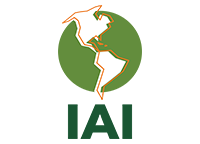Metrics for assessing adaptive capacity and water security: common challenges, diverging contexts, emerging consensus.
| Publicado en | Current Opinion in Environmental Sustainability, v. 21:86-89 |
|---|---|
| Autores | Garfin, G.M., Scott, C.A., Wilder, M., Varady, R.G. and Merideth, R. |
| Año de publicación | 2016 |
| DOI | https://doi.org/10.1016/j.cosust.2016.11.007 |
| Afiliaciones |
|
| Programa | CRN3 |
| Proyecto | CRN3056 |
| Keywords | |
Highlights
•Lack of information on reliability of adaptive capacity metrics constitutes an information gap.
•Improved diagnoses and mensuration of water security policy and monitoring are needed.
•Context, scale matter in adaptive capacity (process), water security (goal) definitions.
•Improved assessments require qualitative, quantitative, and hybrid metrics.
•Science–policy interface governance fosters collaborative methods for robust metrics.
•Evidence challenges strict notions of reproducible methods and notes use of metrics for comparative assessments.
Abstract
The rapid pace of climate and environmental changes requires some degree of adaptation, to forestall or avoid severe impacts. Adaptive capacity and water security are concepts used to guide the ways in which resource managers plan for and manage change. Yet the assessment of adaptive capacity and water security remains elusive, due to flaws in guiding concepts, paucity or inadequacy of data, and multiple difficulties in measuring the effectiveness of management prescriptions at scales relevant to decision-making. We draw on conceptual framings and empirical findings of the thirteen articles in this special issue and seek to respond to key questions with respect to metrics for the measurement, governance, information accessibility, and robustness of the knowledge produced in conjunction with ideas related to adaptive capacity and water security. Three overarching conclusions from this body of work are (a) systematic cross-comparisons of metrics, using the same models and indicators, are needed to validate the reliability of evaluation instruments for adaptive capacity and water security, (b) the robustness of metrics to applications across multiple scales of analysis can be enhanced by a 'metrics plus' approach that combines well-designed quantitative metrics with in-depth qualitative methods that provide rich context and local knowledge, and (c) changes in the governance of science-policy can address deficits in public participation, foster knowledge exchange, and encourage the co-development of adaptive processes and approaches (e.g., risk-based framing) that move beyond development and use of static indicators and metrics.
